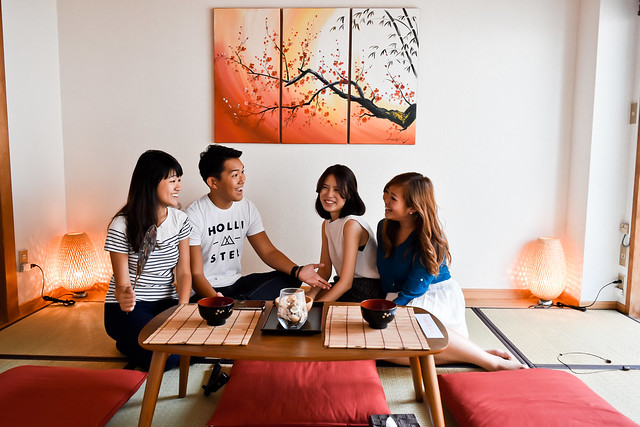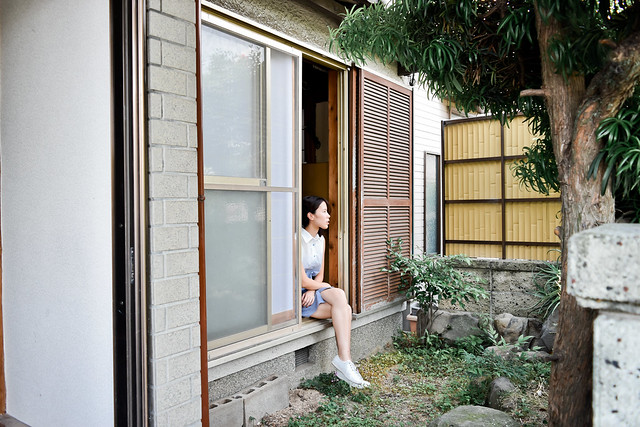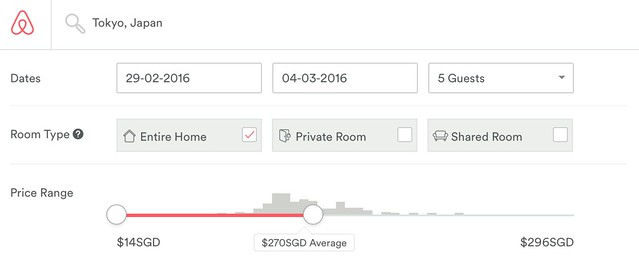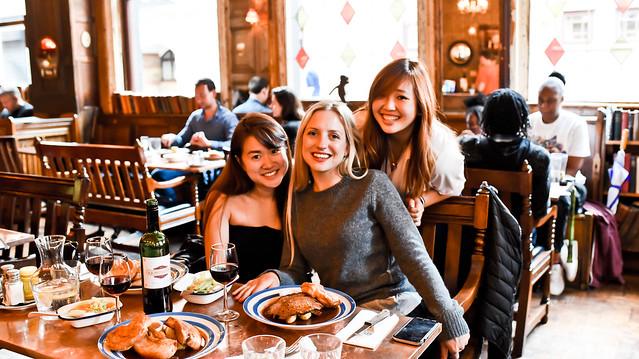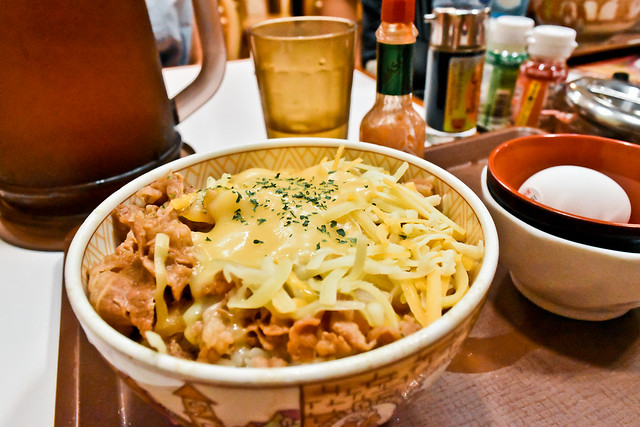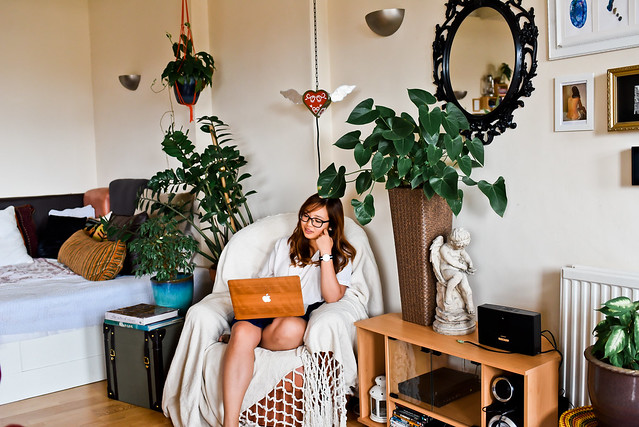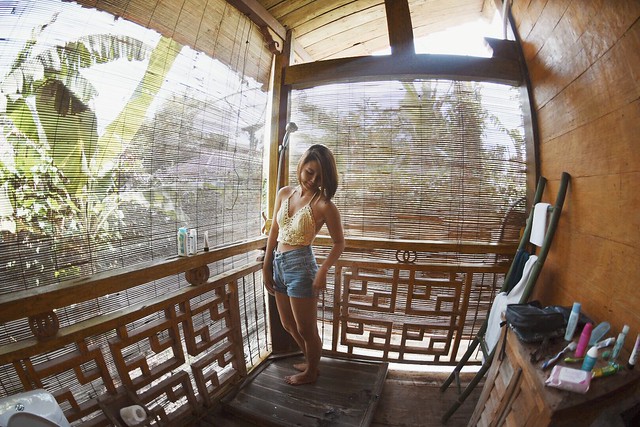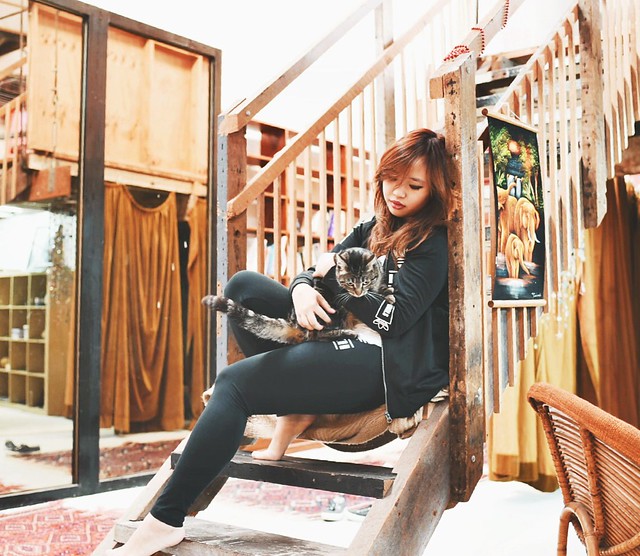So! I get a lot of questions on how I find the places I stay in when traveling, and how they’re so damn instagrammable. Probably an accurate reflection of the new gen traveller’s priorities, but regardless.. I thought it was about time I put together a post on the things I look out for while picking a place abroad.
First up, some things you need to know before even getting down to selecting a place:
Budgeting Issues
This is the first question any traveller needs to ask themselves. What’s your budget? How much do you want to spend on accommodation? How much do you want to spend in relation to comfort? If you’re not willing to spend anything, if you’re on a real tight budget, then you might want to look at Couchsurfing. Couchsurfing is free, but you’re expected to hang out with your host, and some people are concerned about safety – for more, you can read my Broke Student’s Guide to Couchsurfing here.
However, couchsurfing gets harder the more people you have – most hosts are only able to accommodate one or two surfers on their couch, and if you’re travelling in a group, you may not be able to find a host. If you’ve got a set budget you want to work with, then obviously you’re going to want to start looking at Airbnb – they’ve got places to suit every budget, and it’s going to be cheaper than a hotel since you divide the cost of your apartment by the number of people you have. Also, you have the option of choosing really unique places, like this freakin studio ghibli inspired mansion I stayed in…
You can set your max and minimum budget by toggling the price chart on the site itself, if you already know how much you’re willing to spend.
Do you want to make new friends?
One thing I realised for Airbnb listings in general is, unless it’s a specifically touristy area like Bali, your private rooms tend to be more well furnished than if you rent an entire apartment. This makes sense if you really think about it, because if the host is also living there then they’re more likely to put more pride into furnishing their house nicely and securing a better location for themselves. Whereas on the other hand, if they’re renting out an entire apartment, you get more privacy, but your apartment may have less character since no one is living there long term. Just putting it out there.
What’s a good time to start looking?
Generally, the earlier the better. Once I have my flight tickets down, I’ll start looking for accommodation options. Popular places like Tokyo or London get snapped up very quickly, so I suggest you start looking at least 2 months in advance.
Things to look out for when picking a listing
1. Location
It’s all about the location, I’ve come to realise. Not just the area you’re staying in, but it’s proximity to the local train and bus stations. What’s the point of picking an apartment in, say, Shinjuku (the main hub of Tokyo), but have it be twenty minutes walk from the station? You’d waste so much time everyday just trying to get to a train, and it’s inconvenient. Also, district – some places may be cheaper because they’re out of the way, but when you factor in the amount you’re going to spend travelling in and out of the city centre, they become much more expensive. This is especially true in countries that have expensive public transportation fares, like Australia or Japan.
2. Lift in Building
If your apartment isn’t on the first floor, then look out for this option under amenities. I once made the mistake of booking a studio apartment on the fourth floor without a lift… which made carrying our huge luggages up and down a nightmare. Rookie mistake – never again.
If I’m travelling to an expensive city, then there’s no way I’m booking an apartment without a kitchen. For example – a meal out in New Zealand is easily twenty dollars. The same twenty dollars could feed an entire family a home cooked dinner of steak and potatoes, because groceries are relatively cheap in the trans-tasman region and they have their own livestock. This is also where location comes into play – if you’re living super far from a train station or bus stop, then the idea of lugging heavy groceries back a long way will probably cause you to splurge on a meal out anyway, making you spend more money on trip.
However, for certain cities like Japan, groceries arent much cheaper than eating out – in fact, they may be more expensive.. so it doesn’t matter to me if there’s a kitchen in those cities or not.
4. Reviews
I rarely book a place with less than a 4.5star rating, and I never book a place with a rating under 4. I also suggest taking the time to read through the reviews, because some of them can be quite telling – for example, your host may claim that his/her place is five minutes from the train station, but the reviews may clarify that realistically, it’s about a ten minute walk.
How the airbnb review system works is, after your stay, you get a 14 day period to leave a review for your host and your host for you. You can’t read what your host has written about you or vice versa until both of you have written your reviews, which by then are unchangeable. This gives you a sort of security blanket, so if you’ve had a bad experience you can kinda still say so without worrying that your host will see it and write something bad on your profile out of spite.
You cannot delete or edit a review, so think carefully before you give one. This is also reassuring in the sense that what reviews you read on the listing you’re looking at are uncurated, and the host hasn’t deleted anything that might make them look bad simply because they cannot.
5. Wireless Internet
I absolutely will not book a place without internet access unless I’m looking at a listing in the middle of a forest or something like that. One of the most reassuring things about a home or home away from home for me is wifi that connects automatically and steadily. It’s the 21st century and I dont see why a place would conceivably not have wifi!! Some places may not have strong wifi, but they will usually have pretty serviceable connection, good enough for checking your email and stuff.
Things that I take special note of:
1. Shampoo and towels provided?
This is also listed under Amenities in the listing’s profile. Shampoo isn’t a deal breaker – I can always pack, or buy, I just have to take note beforehand so I dont arrive wanting a shower and not having anything to shower with. But I wouldn’t book a place that doesn’t provide towels, because they take up too much precious luggage space to pack in, and because most airbnb places do provide towels so to pick one that doesn’t seems a bit counter intuitive.
This usually doesn’t matter unless you’re on a long trip. When I was doing my three week trip across Europe, it was essential that at least one apartment in the middle of my trip had a washer that I could use, because packing three weeks worth of unique outfits was just not feasible.
Also, even if the apartment has a washer, it may not have detergent. This really depends on the accommodation – ask your host about this beforehand if need be, because if they dont provide soap then you’re better off packing some from home in a ziplock bag instead of buying a whole new box abroad. Again, it’s more likely that the host will have these things available if you’re renting a private room in their home, but they may come with a charge. Just ask your host before you actually make the trip!
3. Extra People policy
Sometimes listings state that they accommodate six people, but in the actual listing profile they put that there’s an extra charge after the fourth person per person per night. This is quite annoying but it can’t be helped, so just keep an eye out for this.
I get a surprising number of emails on whether airbnb is safe. I guess this is a valid concern, given that youre staying in someone else’s home, especially if its your first time using Airbnb. I guess a couple of things you could look out for to assuage your concerns would be content of reviews, number of reviews, and verified photos.
I mentioned this in my Bangkok post before, but Airbnb provides a free photography service to all hosts, where an official Airbnb photographer will come down and take pictures of the apartment that can later be used in the airbnb listing that you finally see. If the photos of the listing were taken by a professional Airbnb photographer, the apartment should be more or less legitimate (you can tell by the ‘verified photo’ label when you click on the pictures), and you’ll sleep easy knowing that your apartment was at least checked out by an official representative from Airbnb.
5. Extra Costs
I’ve mentioned this before, but it’s good to know anyway..
The amount you see quoted per night isn’t the final amount – there are a couple of hidden costs. Airbnb has a service fee, which usually varies with the cost of your accommodation. This is basically accommodation insurance – if your host doesn’t turn up, or tries to suddenly raise the price upon arrival, airbnb’s customer experience team will sort it out for you and guarantee your price/ refund/ etc. Some hosts require a security deposit of up to 200Euros, which can be a little daunting, but it’s not actually deducted from your bank account, it’s just blocked out. And some hosts have a compulsory cleaning service that they charge you for. So remember to factor all these in when making a decision, because they can all add up – especially the cleaning service, that can get rather expensive.
On the other hand, the service fee you pay is kind of like accommodation insurance. When you book with Airbnb and something goes wrong, Airbnb guarantees your booking fees, and also springs up to find somewhere else for you to stay immediately, and pretty much helping you out in your time of need.
—-
You can get $35 off your first stay with Airbnb on airbnb.com/jemma.
Go forth and travel. x
x
♥jem


